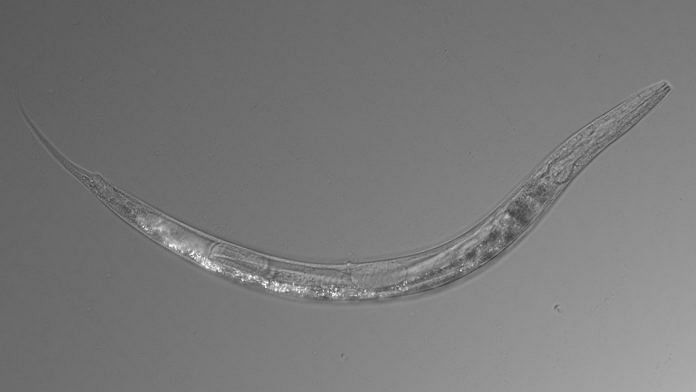Eight more species of worms discovered around the area
Caltech scientists have discovered a new species of worm in Mono Lake, California. Temporarily named Auanema, the worm has three sexes, can ingest arsenic and carries its young inside its body like marsupials. Mono Lake is highly alkaline and this worm is only the third species of any life found inside the lake. The researchers also discovered eight more species of worms around the area. Read more on Phys.org.
Machu Picchu was purposely built on two fault lines
Using satellite imagery and field data, geologists have mapped small fissures running underneath individual boulders at the site of Machu Picchu, which sits at the intersection of two fault lines. The researchers conclude that since these faults produce granite that is already broken into smaller pieces, it is likely that the Inca built the site specifically at this location because of this reason. More on Smithsonian.
Video shows octopus changing color while dreaming
In a new clip from an upcoming PBS documentary, an octopus is seen changing colors while dreaming, as she lay upside down in water. A marine biologist is heard narrating what might be happening in her dream: her moving from the bottom of a water body and then catching a crab, then camouflaging herself to be able to eat it. Read more on this on Laughing Squid.
Humans have lived in low-CO2 environment until 1965
Humans haven’t lived with a high carbon dioxide atmospheric condition before 1965, according to a new study. For the past 2.5 million years, the carbon dioxide in the atmosphere has remained below 230 parts per million, but from 1965 to the present day, it has climbed to 410 parts per million. More on Texas A&M Today.



